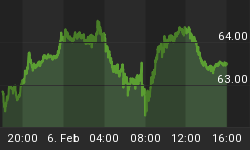Bonds are a subject we've been discussing in this space and elsewhere for more than a year. Over and over again we've explain the relationship between bond prices and interest rates, along with the risks faced by bondholders in an environment of rising rates.
The other side of the same coin - the lending market and the desperation of investors for yield - has received comparatively less attention. In just the past few days there have been a number of developments which highlight the issue and are worth consideration.
First, in Wednesday's Wall Street Journal (and receiving considerable attention on the radio's Wall Street Journal Report) is a story about the recent growth of online peer-to-peer lending platforms. Essentially what these sites allow people to do is lend and borrow directly with one another, removing banks from their typical role as intermediaries in that process.
Basically what we're seeing is an explosion of sites that are just like Kickstarter, but for personal lines of credit. Granted, this system probably won't work out in the long run (problems with due diligence and delinquency seem apparent) but that's beside the point. In the meantime, it is an excellent case showing the desperation of investors searching for yield on excess cash.
What is most insightful about this development is the major problem being faced by new "P2P" lending platforms: they're having trouble finding borrowers - not lenders. In this respect, the platforms are now facing the same problem banks have been for the past four years: there simply hasn't been any demand for loans.
As a result, banks have been sitting for the past several years on humongous and growing mountains of excess cash reserves. They simply haven't been lending money, mostly because there has been so little demand to borrow. Apparently much of the American public learned their lesson in 2007/2008, and has cut down on debt in an effort to avoid overextending themselves.
In an effort to spur economic activity by encouraging borrowing, Ben Bernanke's Fed has long-maintained a cheap money policy by keeping interest rates unreasonably low. Unfortunately, rates have remained too low for too long, and the Fed's biggest weapon has lost its effectiveness. Americans have seen rates so low for so long that they no longer seem them as sufficient motivation to borrow. There has been no rush to borrow because most Americans still think rates will be just as low going forward.
Now, as interest rates have started to tick up, there has been another new [and very revelatory] development. On Tuesday President Obama spoke in Phoenix about the housing market. Among other remarks, the President indicated that he plans to make a move to unwind government-sponsored mortgage guarantors Fannie Mae and Freddie Mac - both of whom received massive government bailouts in the fallout of the 2007 housing bubble burst.
The potential consequences of such a move may not be readily apparent, but rest assured they may be deep and far-reaching. Since 2008 there has been almost no market for home mortgages in this country - investors simply refuse to buy them from banks unless they have Fannie or Freddie seals of approval. In fact, almost every mortgage written in this country since the meltdown has had to pass through one of those two organizations before it could be sold to investors in the open market. Every single mortgage under about $400,000 has had to pass through Fannie or Freddie's hands.
What Fannie and Freddie have been able to do is allow banks to package home loans and sell them to investors, getting them off banks' balance sheets in exchange for more cash that banks can go lend. Without Fannie or Freddie guarantees, interest rates would be through the roof because banks and investors would demand more compensation for the risks they incur of potential defaults.
If Fannie and/or Freddie disappear, there are going to be major changes made to US lending markets. Banks may be forced to keep a significantly larger portion of loans they write, rather than packaging them for sale to investors and thereby shifting the risks of default, early repayment, etc. Otherwise, they'll likely have to raise rates (read: encourage the coming rise in interest rates) in order to provide investors with sufficient reward for the risks they assume when buying packaged loans.















